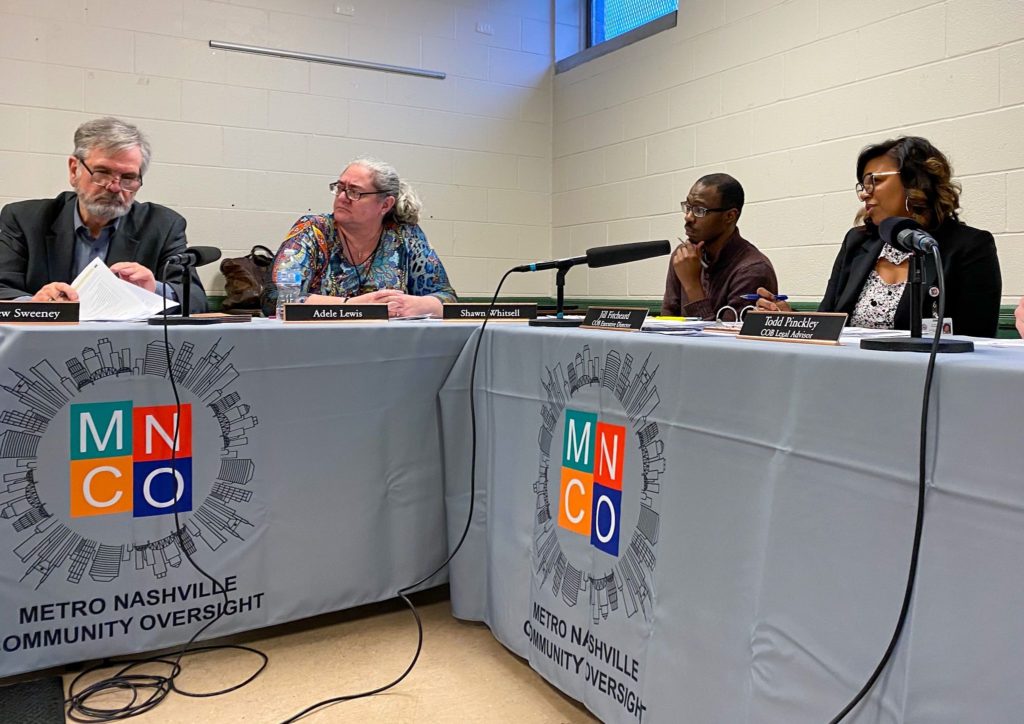
Nashville’s new Community Oversight Board is calling for an emergency meeting with police to further flesh out its relationship with the department.
The two groups signed an agreement barely two months ago, after weeks of tense negotiations. But at a meeting Wednesday night, board members said that agreement was already falling short.
Staff investigators from Metro Nashville Community Oversight — the government department that supports the oversight board — are gearing up to interview five police officers with outstanding complaints against them.
But some of the logistics for how that process will play out didn’t make their way into the group’s eight-page agreement with the police department, specifically where officers will be interviewed.
Chief Steve Anderson has mandated all five of the officers to cooperate with the investigation.
But Community Oversight Executive Director Jill Fitcheard said Anderson will only allow them to be questioned at police headquarters. And that, she said, is not in the agreement.
“I am not comfortable with that,” Fitcheard said at the board meeting. “It does not seem to be an independent investigation if they are there, recording and engaging in our interview.”
Fitcheard added that officers can have their attorneys in the room for their interviews, no matter where they take place.
Board Chair Ashlee Davis likened interviewing officers at police headquarters, rather than at Community Oversight offices, to “intimidation.” She thinks the memorandum of understanding between police and the board should be amended to specify that interviews will not be held at the police department.
“The MOU was crafted with everyone at the table, everyone understanding we’re doing what is best for the body of the cause,” Davis said. “This here seems very self-focused here. And that worries me.”
A police spokesperson said in an email that the department plans to hold interviews at headquarters in cases when officers are ordered by the chief to participate.
A directive Anderson sent to employees over the summer stated that employees would be “encouraged to cooperate” with oversight inquiries, but that they may also “decline the request and request that the Chief of Police issue an order requiring cooperation with the COB.” That’s because of something called Garrity rights, which protect public officials from being forced to incriminate themselves.
All of this information made it into the final draft of the agreement between police and the oversight board.
But the directive then went on to say that “interviews of MNPD employees by COB personnel will be conducted in a designated interview facility at MNPD Headquarters … MNPD will furnish technical support personnel to insure that the interview is video and audio recorded. The MNPD Office of Professional Accountability (OPA) may elect to simultaneously monitor the interview for the purpose of determining whether a concurrent MNPD investigation is warranted.”
That language was not included in the agreement.
Board members voted to organize an emergency meeting with representatives from the police department and Metro government within the next week, to work out a solution. Police did not respond at the time of publishing when asked whether the department would send someone on their behalf.
Samantha Max is a Report for America corps member.

